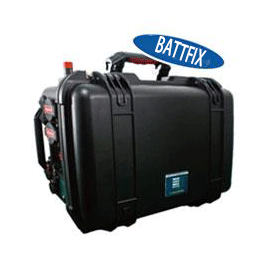
# How to Choose the Right Auto Battery Charger for Your Vehicle
Understanding Your Vehicle’s Battery Needs
Before purchasing an auto battery charger, it’s crucial to understand your vehicle’s specific battery requirements. Most modern cars use 12-volt batteries, while some older models or heavy-duty vehicles might require 6-volt or 24-volt chargers. Check your owner’s manual or the label on your battery to determine the correct voltage.
The battery’s capacity, measured in ampere-hours (Ah), is another important factor. A charger with insufficient amperage won’t effectively charge your battery, while one with too much power could potentially damage it. As a general rule, choose a charger with an output of at least 10% of your battery’s Ah rating.
Types of Auto Battery Chargers
Trickle Chargers
Trickle chargers provide a slow, steady charge and are ideal for maintaining batteries in vehicles that aren’t used frequently. They typically deliver 1-3 amps and can be left connected for extended periods without overcharging the battery.
Standard Chargers
These chargers offer faster charging speeds, usually between 4-15 amps. They’re suitable for regular use but require monitoring to prevent overcharging. Many modern standard chargers include automatic shut-off features.
Smart Chargers
Smart or intelligent chargers are the most advanced option. They automatically adjust the charging rate based on the battery’s condition and typically include features like desulfation, maintenance mode, and automatic shut-off when the battery is fully charged.
Key Features to Consider
Automatic vs. Manual: Automatic chargers are more convenient and safer, as they adjust the charging process and shut off when complete. Manual chargers require more attention but may be cheaper.
Portability: If you need to move the charger frequently or use it in different locations, consider its size and weight. Some models come with carrying handles or compact designs.
Safety Features: Look for protections against reverse polarity, short circuits, overcharging, and overheating. These features can prevent damage to both your battery and the charger.
Additional Functions: Some chargers offer battery testing, reconditioning modes, or the ability to charge other types of batteries (like marine or motorcycle batteries).
Matching the Charger to Your Usage
Consider how you’ll use the charger. If you need it for emergency jump-starts, look for models with that capability. For seasonal vehicles, a trickle charger might be best. Regular maintenance charging calls for a smart charger with automatic features.
Also think about where you’ll use it. If you need to charge outdoors or in damp conditions, ensure the charger is rated for such environments and has appropriate weatherproofing.
Brand and Warranty Considerations
Stick with reputable brands known for quality battery chargers. While they might cost more initially, they typically last longer and perform better. Check the warranty period and what it covers – a longer warranty often indicates the manufacturer’s confidence in their product.
Read reviews from other users to learn about real-world performance and reliability. Pay attention to comments about durability, accuracy of charge indicators, and customer service experiences.
Final Tips for Choosing Your Auto Battery Charger
Always match the charger to your battery type (standard flooded, AGM, or gel). Using the wrong type can damage your battery. If you’re unsure, consult with a professional or choose
Keyword: auto battery charger